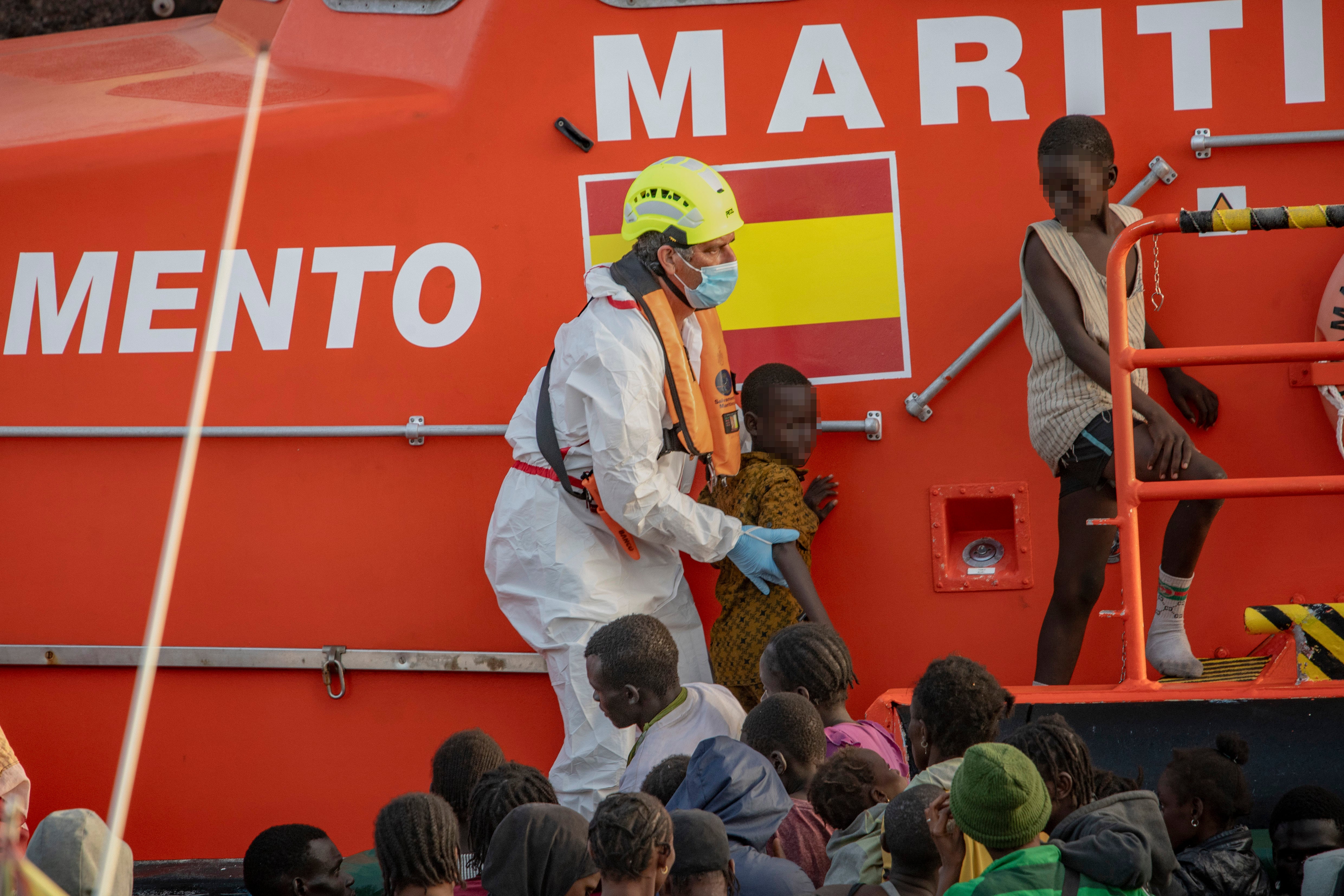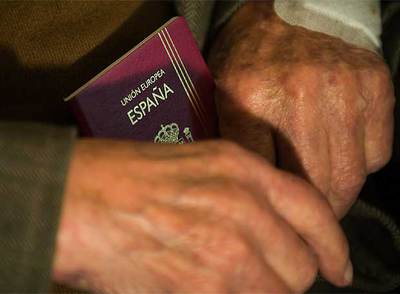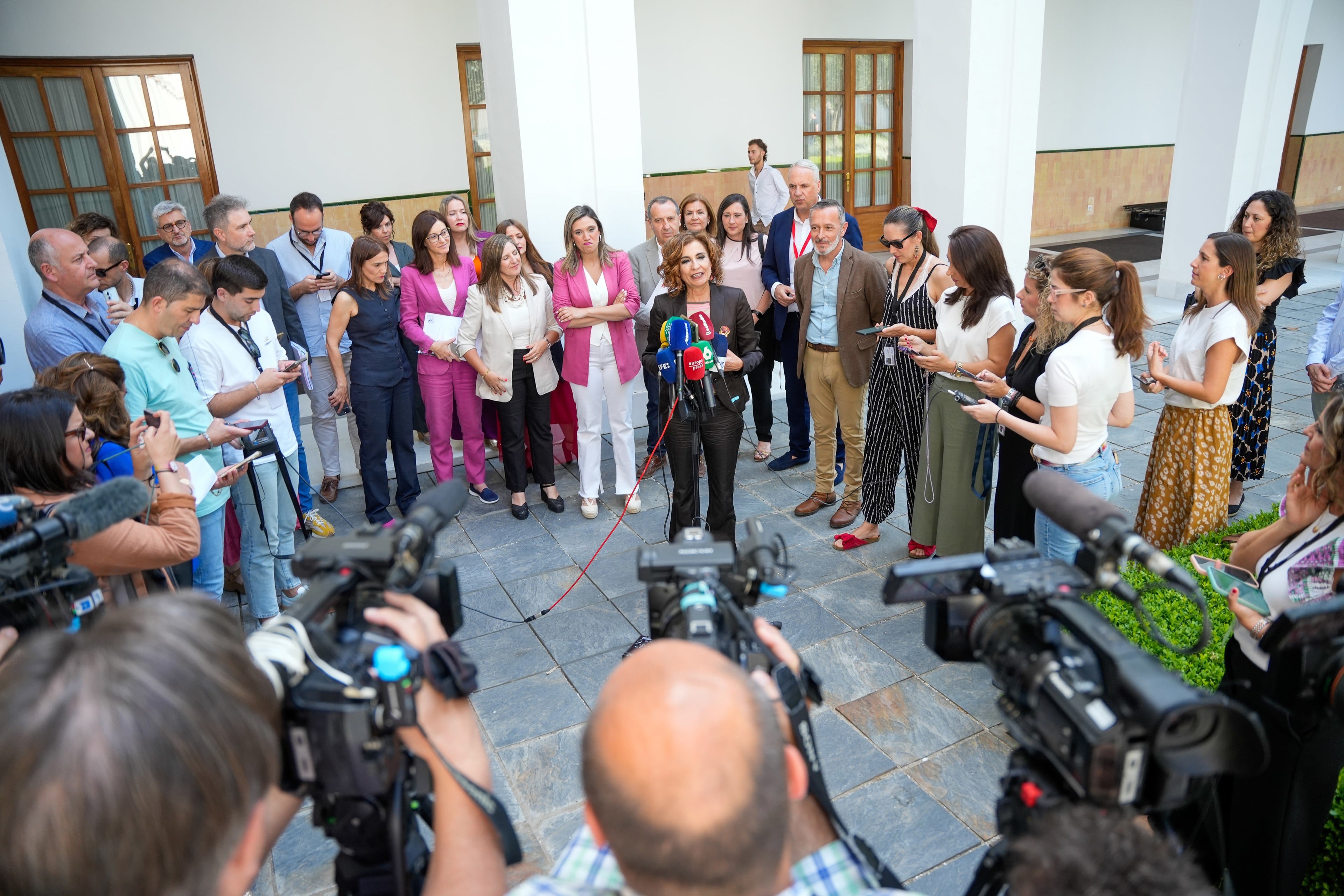The data for the relocation of migrant minors: almost all communities will have to open places (some much more than others) | Spain

Nothing ignites the spirits more than the numbers. In the long process to carry out the relocation of unaccompanied migrant minors They are overcrowded in Ceuta and the Canary Islandsthe Ministry of Youth and Childhood presents this Wednesday to the new numbers communities. And they don’t leave almost anyone well. The numbers, to which the country has had access, reveals a problem that has been on the table for months: that the reception network for these children and adolescents is absurdly unequal, with territories that make titanic efforts (Canary Islands, Ceuta, Melilla or Baleares) and others that maintain deficits of 300%, such as Castilla y León, Castilla-La Mancha or Cantabria.
This Wednesday’s appointment is from the Secretary of State for Youth, Rubén Pérez, with the general directors of Autonomous Children. It is a meeting for a new sectorial commission of childhood in which the Government intends to close the last fringes to start transfers in July. In the meeting on Wednesday, Pérez will present the tables with which the ordinary capacity that each territory should have to host, in a balanced way, to the nearly 16,000 minors who have emigrated alone to Spain have been calculated. The calculation takes into account the total number of unaccompanied foreign minors and the population and it is concluded that the ideal is that each community charges 32 of these children per 100,000 inhabitants.
The table is still considered a proposal, “a work document” open to the contributions of the Autonomous Communities. « This criterion will be elevated to the next sector conference, with the objective that the autonomous communities can discuss it and, where appropriate, propose other complementary criteria, » they report sources from the Ministry of Childhood.
Ordinary capacity is a key concept in all the negotiation because it will determine which communities, according to their position deficit, will have to welcome more, which ones can be declared saturated and which ones may claim funds from the State.
The figures reflect an enormous inequality. Of the 19 autonomous communities and cities, 15 of them are below their ordinary capacity. On the one hand, there are entry territories such as Canary Islands, Ceuta, Melilla and Balearic Islands that are well above that ordinary capacity, with excesses of 675%, 1,848%, 589% and 57% respectively. On the other, regions such as Galicia, Castilla-La Mancha, Cantabria and Asturias are well below that stop and barely cover around 30% of what would correspond to them. Several of them would need to stretch their network 300% or more to reach the reception capacity that Youth considers ideal.
In the controversial case of Cataloniawhere it is assumed that so many minors will not go because according to the PP it was the condition imposed by Carles Puigdemont, the numbers say the following: Catalonia, with a population of more than eight million people, has 5,100 places to host minors (local and migrants not accompanied) and dedicates almost half of all its resources to the seconds. In addition to the Canary Islands, because of the exceptional situation in which it is located, it is the community with more beds with much difference. According to the table, Catalonia is very close to its ordinary capacity, with a deficit of only 137 seats.
The case of Madrid, on the contrary, has generated suspicions in the Ministry of Childhood and Youth. They do not believe the figures they have sent. The community, one of the most belligerents against the government’s plan, has just over seven million inhabitants and 2,352 reception places for minors (unaccompanied local and migrants), there are many less than in Catalonia (with a population not so disparate), but in their case it should only expand their network in 83 places for migrant minors. The key – or the trick – is that, according to the community, Madrid dedicates 92% of all its reception places to attend unaccompanied foreigners. « It is a delirium, » they maintain knowledgeable sources of the system. The truth is that this percentage attracts attention among all the rest, because except for the entry communities, the rest is that the rest allocates half of its places (or much less) to this group. The ministry has had to make some bobbin lace because Several of the communities have not sent the requested data To square the accounts. Aragon, directly, declared himself in rebellion and refused to provide any information about his reception network. His resistance has led to Government to go to the Constitutional. One more cause, which adds to those that have presented several PP communities against the Government to hinder the relocation of minors.






